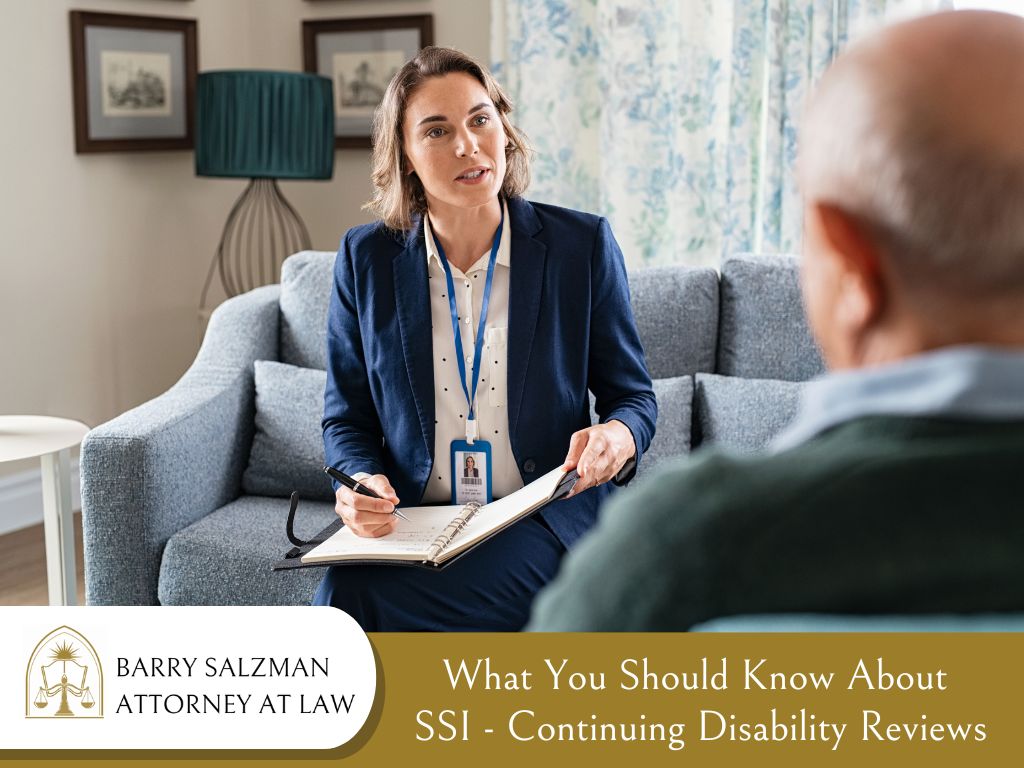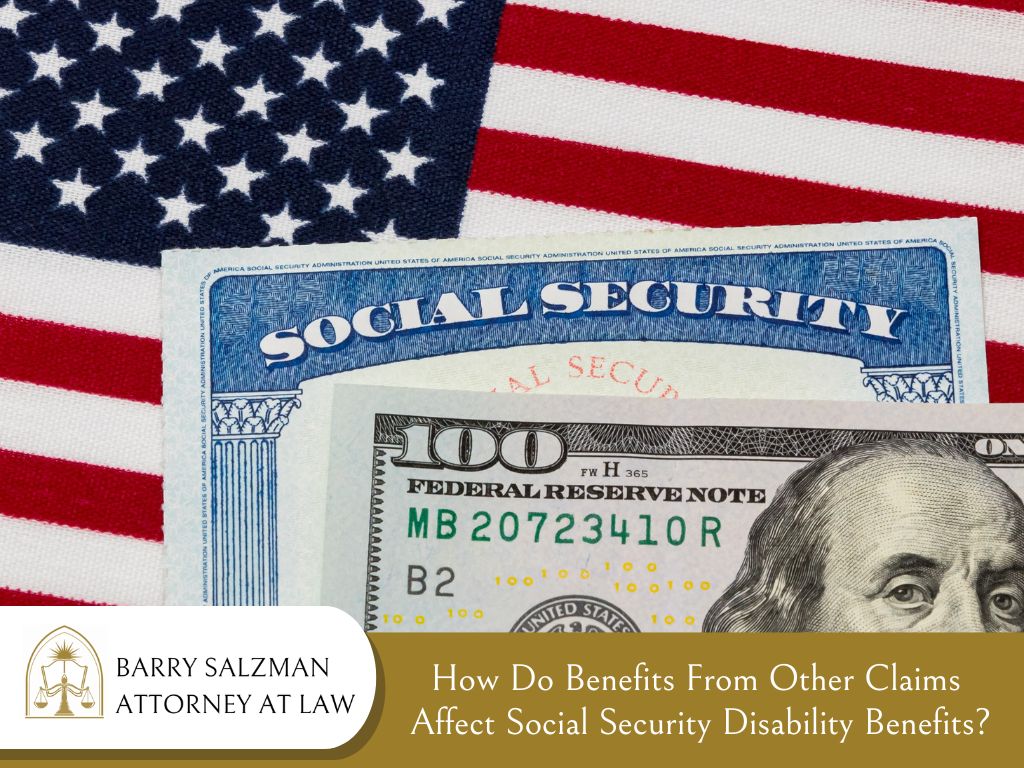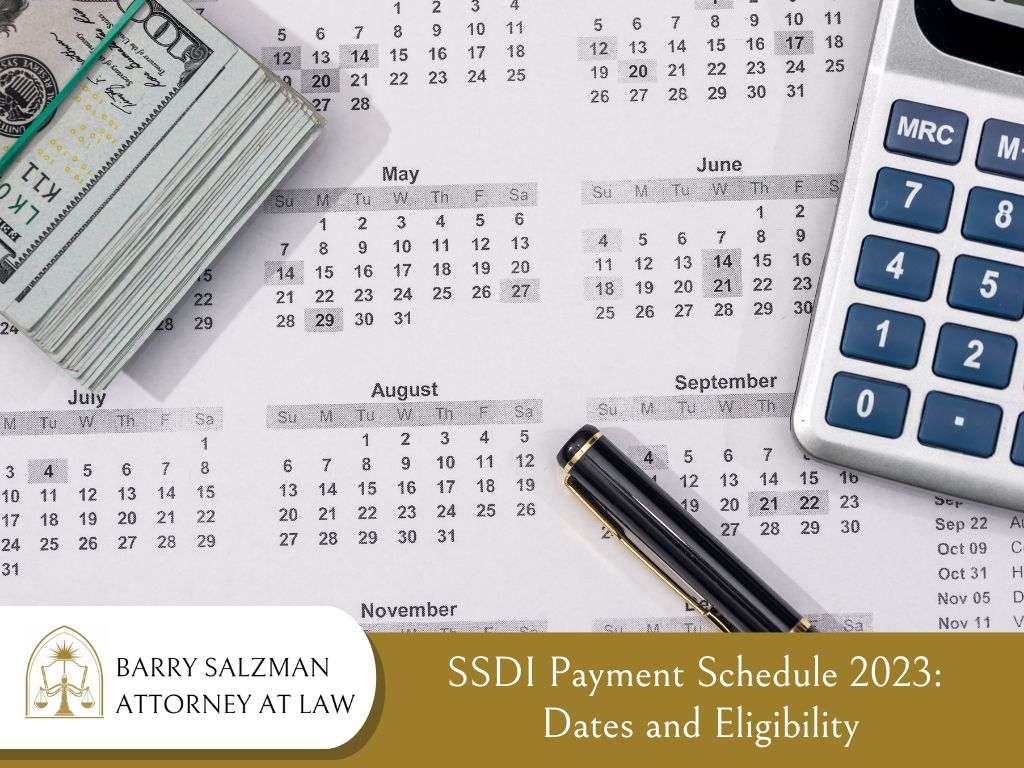Thinking about filing a disability claim but not sure you are qualified for benefits?
Are you overwhelmed with the paperwork after filing a claim?
Has your claim been denied?
If so, I can help you. Get expert advice from an experienced disability lawyer about whether you are qualified to receive disability benefits. You don’t have to navigate the claims process alone; help is available. Find out what you need to overturn a denial of benefits.

Overview of Social Security Disability Benefits
The Social Security Administration administers two benefit programs: Disability Insurance Benefits (DIB) and Supplemental Security Income (SSI).
DIB includes benefits for your children if you are disabled, benefits for your survivors, and benefits for certain disabled children. DIB requires that you have sufficient earnings credits through the payment of social security taxes on earned income. Without sufficient earnings credits, you are not insured for DIB.
SSI is a welfare benefit that is not based on whether you have earned sufficient credits or whether you have ever worked at all. SSI requires the same proof of disability as with DIB but also requires that your financial resources be quite limited. SSI also provides benefits for disabled children when the parents have limited financial resources. The basis for determining disability in children is very different than the basis for determining disability for adults.
Eligibility to Make a Claim for Disability
You are considered “insured” for DIB if you are below age 24 and have at least 6 earnings credits in the 3-year period before you became disabled; if you are between age 24 and before age 31 and have credits for half the years between age 21 and the date you became disabled; and if you are age 31 you need 5 years of credits in the 10 year period before you became disabled. For SSI eligibility, a single person must not have financial resources in excess of $2,000; married persons cannot have financial resources in excess of $3,000. Neither your home nor one automobile is considered a “countable resource”, but virtually anything else of value is considered. If you are married and your spouse works, your spouse’s income is considered available to you and is counted as a resource unless you are living apart.
Monthly DIB benefits are based on the level of your earnings over the period you have worked. SSA generally uses the highest 5 years of your past earnings. SSA then uses a formula to calculate each person’s benefit amount. Monthly SSI benefits are referred to as the federal benefit rate, which is established each year and is the same amount for everyone. The SSI benefit rate is currently $841/month. This figure can be reduced by any countable income you may be receiving after you are found disabled.

How to Apply for Social Security Disability Benefits in St Petersburg, FL?
You may file your application by contacting your local SSA office, which will provide the application forms, or you may take your application over the phone. You may also file your application online at www.ssa.gov and follow the instructions. You may also get information about your earnings credits and the monthly amount of your disability benefit by creating an online MySSA Account. Instructions are found on the SSA website.
How Does SSA Determine Whether You Are Disabled?
We call it the 5-step sequential evaluation process. Here's how it works:
Has the claimant engaged in a substantial gainful activity (SGA) since becoming disabled? SGA is an amount of earned income established each year by SSA as the amount which will render you ineligible for benefits because you earn too much money to be disabled. In calendar 2022, that was any amount over $1,350/month for non-blind claimants. If you have earned more than that amount after the date you say you became disabled, your claim must be denied without further consideration of the evidence.
Does the claimant have one or more medically determinable conditions that can be considered a severe impairment? A severe impairment is any physical or mental condition that has been diagnosed by a qualified physician and which causes more than a minimal limitation of the claimant’s ability to perform basic work activities: standing, walking, sitting, lifting, carrying, pushing/pulling, bending, stooping, kneeling, crouching, seeing, hearing, speaking, understanding, remembering, using judgment, and responding appropriately to supervisors, co-workers, and the public. Medical records are essential at this point. No matter how bad you hurt or what limitations you may have, you must have medical records that document a diagnosed medical condition that could produce the problems you allege.
Does the claimant have one or more medically determinable conditions that meet or equal to SSA’s Listings of Impairments? SSA has produced a catalog of various medical conditions and prescribed the medical criteria that must be found in your medical records to consider you disabled solely based on medical considerations. These listings are difficult to meet. No more than 20% of all persons receiving benefits have “listing level” impairments. If you don’t meet a listing, your case goes on to step 4 and 5. Benefits are automatically granted if you meet the listing criteria without further consideration of steps 4 and 5.
What is your residual functional capacity? This means what you can still do despite your disabilities. This is a function-by-function assessment that considers exertional and non-exertional abilities. Exertional capacity is defined in broad categories of heavy, medium, light, and sedentary work activity. Non-exertional abilities include matters such as seeing, hearing, speaking, understanding, remembering, using judgment, and responding appropriately to supervisors, co-workers, and the public. SSA cannot determine that you are not disabled if you do not have the ability to engage in sustained work activity. SSA must determine that you (1) can get through a normal 8-hour work shift with only customary work breaks, (2) can attend work on a regular and consistent basis, and (3) can maintain an acceptable level of concentration, persistence, and pace for work activity. You will not be found disabled if you have the residual functional capacity to perform any of the work you have performed over the past 15 years. You will not be found disabled if you can perform other work. Determining whether you can perform other work involves other considerations in step 5.
At step 5, SSA determines whether you are capable of other work based on your residual functional capacity. SSA has produced a chart referred to as the Medical-Vocational Guidelines that directs how this decision is made. The most critical factors are age, education, and whether your past work has been skilled, semi-skilled, or unskilled. Under the age of 50, the issue is simply whether you have the ability to perform any simple, routine, unskilled job in the national economy. SSA does not have to show that there are job openings for you or that you will be hired. Over the age of 50, the standard of disability becomes easier to meet if you are limited to sedentary or light work and cannot perform your past work.
This discussion has barely scratched the surface of the issues that need to be considered.

Need Help With Your Social Security Disability Claims in St Pete, FL?
If you need a consultation about your claim, Attorney Barry Salzman is here to help. There is no charge for the consultation. His services are based on a contingent fee agreement-no recovery, no fee. Fees are limited to 25% of retroactive benefits only and are subject to a limit of $7,200.
Your claim is important enough to be done right with an experienced attorney. Help is a phone call away.
Practice Areas

Why You Are in Good Hands With Attorney Barry Salzman:
Frequently Asked Questions
Federal law requires that each state provide the federal government with a disability determination service for the purpose of collecting medical and other information required to evaluate whether you are disabled. In Florida, this agency is the Division of Disability Determinations which is part of the Florida Department of Health. The agency will collect your medical records at no cost to you and ask that you complete questionnaires about how your medical conditions affect your ability to work and your work and educational background.
The agency may also ask you to attend medical examinations. The agency will determine whether you are disabled. SSA will either issue a notice of disapproved claim or an award of benefits. If your claim is denied, you will have 60 days to appeal by requesting reconsideration. This appeal is sent back to the agency to reconsider your case and any additional evidence you have to present. After reconsideration, SSA will issue either a denial or award of benefits.
If denied, you will have 60 days within which to file a request for a hearing before an administrative law judge (ALJ) for SSA. This hearing is very important. Judges approve approximately 45% of the cases they hear. The hearing is the first time in the process that you can appear and give your testimony about your problems and why you can’t work. If the ALJ denies your claim, you may seek review by SSA’s Appeals Council in Washington, DC. The Appeals Council may affirm, overturn, or send your case back to the ALJ for further hearing. From a denial by the Appeals Council, you may seek judicial review in the federal courts.
This process takes time. Due to Covid-19, the state agency has developed a significant backlog of cases which has slowed down the time it takes to get the initial decision…as much as a year. Hopefully, this backlog will get whittled down, and we can get back to normal processing times for initial decisions of about 4-5 months.
Yes, but there is a limit on how much you can earn while your application is pending. The limit changes from year to year.
You must have medical evidence of a diagnosed physical or mental disorder that affects your ability to work.
SSA disability claims are initially processed by state agencies that evaliate claims at the initial and reconsideration levels. Processing times are dependent on the volume of pending claims and staffing in the state agencies.
Upon initial denial you may file for reconsideration. If denied at reconsideration you may request a hearing before an Administrative Law Judge for the Social Security Administration.
You will benefit from expert advice about whether you are likely to be able to prove that you are disabled under SSA law and regulations. You will benefit from a disability attorney's assistance throughout the claims process.
What Our Clients Say
Schedule Your Consultation Today
Navigating the bureaucracy of any disability program is complex and frustrating and often ends in denial.
Don't do it alone! Have a dedicated, experienced advocate on your team.
Fill out the form below or give us a call at 727-321-4993.





